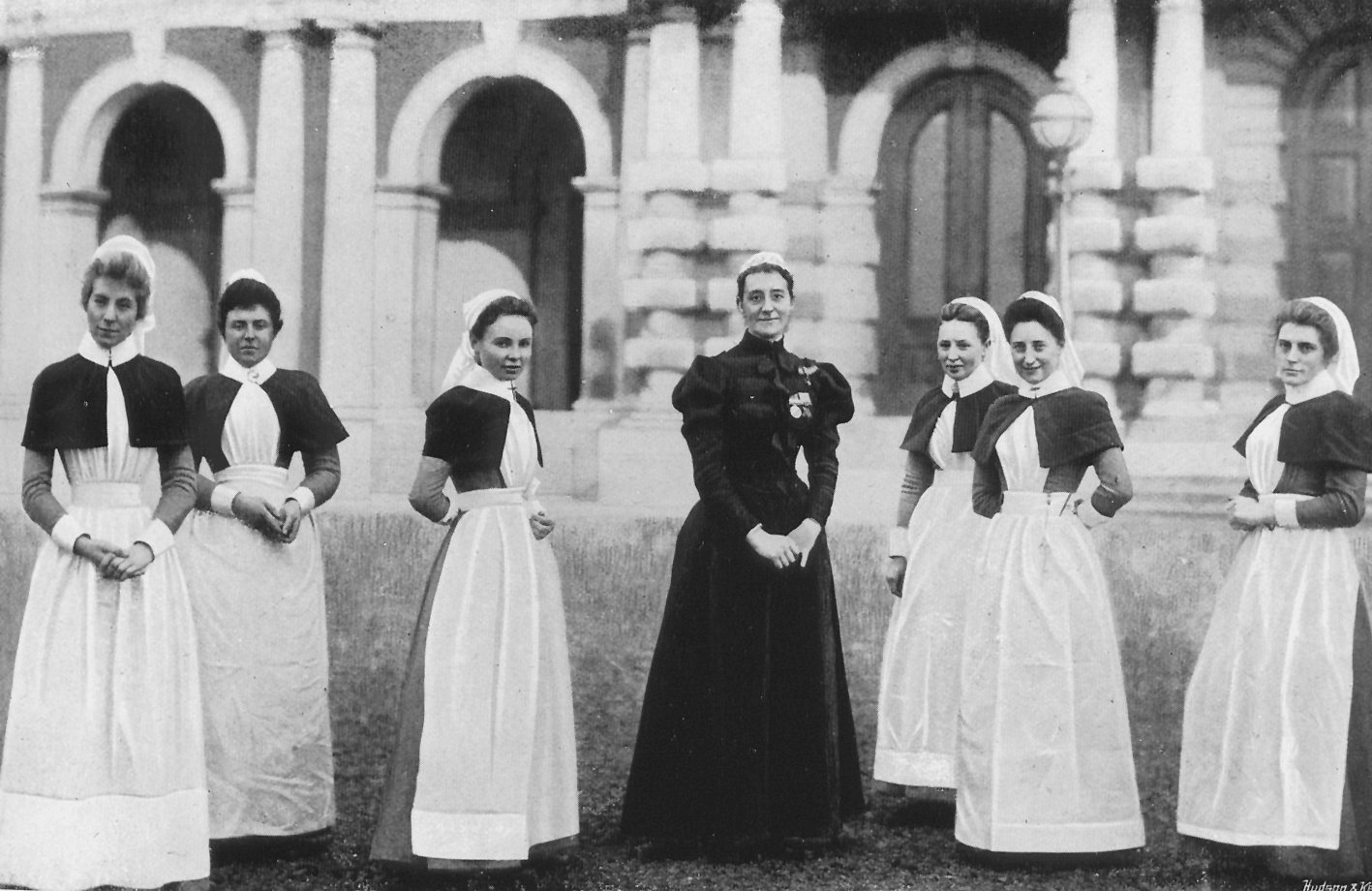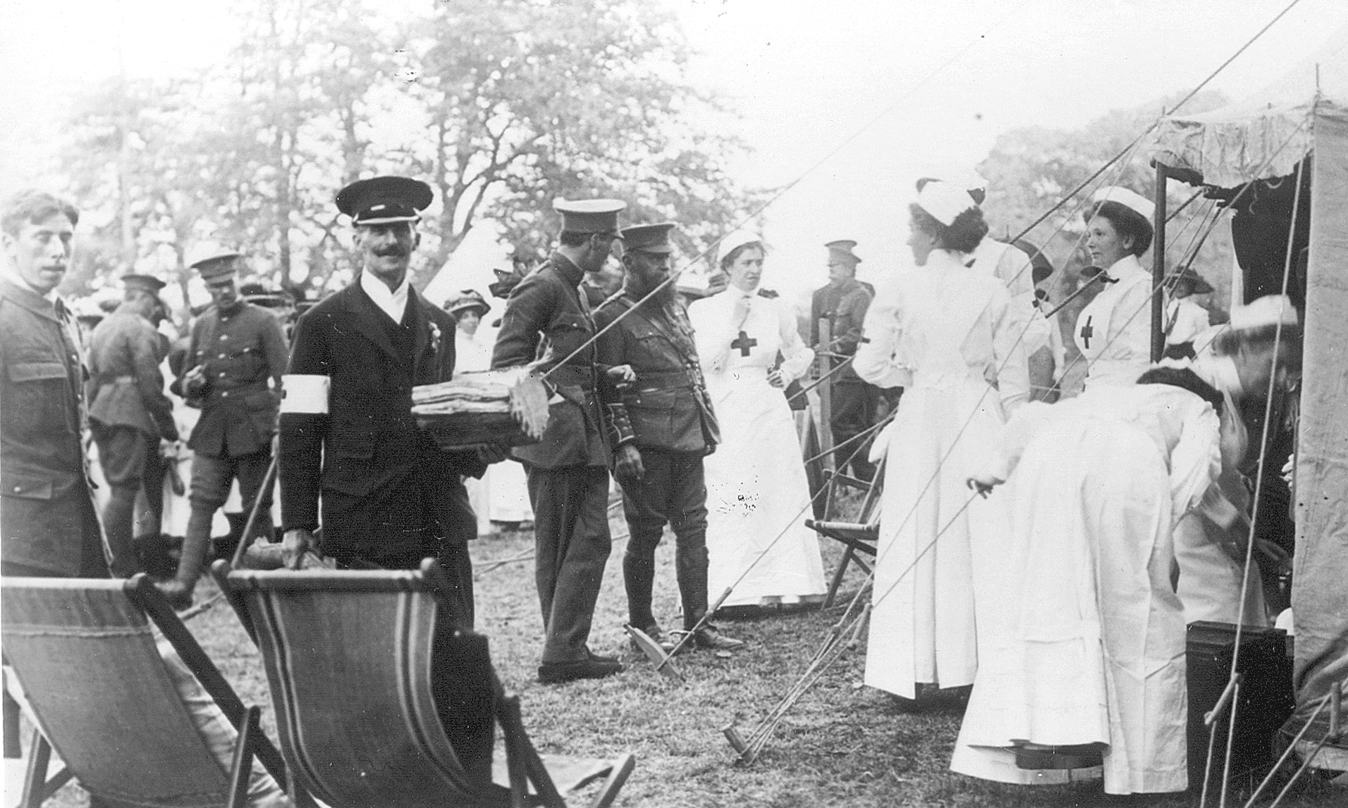Contents
Part I Women in a Man’s World
1 Before the Nightingales
2 The Crimean Experiment
3 Lady into Nurse: Jane Shaw Stewart and the public service 1859–70
4 Uneasy Truce: Her Majesty’s Nursing Sisters 1870–1902
Part II A New View of War
5 Philanthropy and the Battlefield 1854–78
6 ‘Comfort after Comfort’: Nursing Lobbies and the War Office 1879–83
Part III The Big Show
7 Heroines for the Empire 1883–1902
8 Disasters and Reform: the Anglo-Boer War and after 1899–1906
9 The Birth of the : Nursing Reserve Schemes 1906–14
10 Emancipation or Militarisation?
£22.50 (paper) 2000 234x156 mm 342pp 978-1-903152-02-7
Extract from The Big Show

Despite all the continuing practical and hierarchical restrictions of the nurse’s working life, individualism and self-assertion were becoming important elements in her sense of vocation. Virtue no longer had to be its own reward. Patriotism offered a secular standard and validation of worth. The RRC promised women of all classes incorporation in an order with the Queen and the ladies of the court at its apex. The widening empire held out the prospect of earthly adventure in place of the spiritual pilgrimage.
Military nursing was only one of the possibilities: the growing population of expatriate Britons created a demand for the importation of home products and services, including trained nursing, and opened up many opportunities for British nurses to travel. They could work for the Up-Country Nurses’ Association in India, for the Colonial Nursing Association in other colonies, as private nurses anywhere.[14] A British nurse wrote from South Africa in a matter-of-fact way of ‘an English nurse who seeks her fortunes in South African hospitals, as her brother seeks it in the mines of Kimberley or in far-off Rhodesia’.[15]
These developments provoked expressions of alarm amongst the more senior nurses: fame and excitement were not proper motives for taking up nursing work, and the reputation of all could suffer at the hands of a few adventuresses; Catharine Loch’s fears for the Indian Army Nursing Service found many echoes at home. Young heads, it seemed, were too easily turned, and good nurses were abandoning their home hospitals – and their obligations to their matrons – to answer the call of the wild. ‘The spirit of the age is restless’, noted the Hospital Nursing Mirror, ‘and our nurses have not escaped being possessed by it. Let a call come for them for Klondyke, for war, for plague, for South Africa, and hundreds respond with an eager “send me”; and when the choice falls upon another a crowd of disappointed women surge through every door that seems to open to them some new experience.’ ‘be loyal,’ urged ‘A Hospital Matron’. ‘We hear of women hastily relinquishing their work, and flinging themselves into alluring schemes, eager for self-advertisement, dazzled with visions of possible aggrandisement, and blind to the fact that by their impetuous action they may be doing an injustice to their employers and neglecting their immediate duty.’ Battling against the tide, writers in the nursing press urged the care of the poor at home, the improvement of workhouse infirmary nursing, and ‘hourly disregard of self’ on their readers.[16]
from Chapter 7 Heroines for the Empire 1883–1902
Extract from Disasters and Reform 1899–1906
The female nurses of the Boer War demonstrated that even a service ‘composed of ladies’ could live and work and display great stamina in fairly rough conditions. Adventures which before the war had been confined to a few individuals in exceptional circumstances were now the experience of hundreds of British women volunteers. However, women’s evident ability to ‘rough it’ – which had, after all, been demonstrated on previous occasions – was not in itself enough to dispel official prejudices against employing them in the field. Rarely stated before the war, but undoubtedly important in official thinking, was the objection to exposing women to sexual danger. In 1894 Sister Janet King, excoriating the ambitions of Ethel Stokes’s WVMSC, had given a fairly strong hint as to why women should stay well away from the battlefield – ‘what would be their fate as a prisoner of war to savage Cossack, or brutal Bashi Bazook, to fierce Zulu, or cruel and crafty Afghan?’ These objections now had to be qualified. ‘What harm came to Mr Treves’s four nurses at Colenso?’ asked Burdett-Coutts. None, because they were nursing ‘in a distant, but civilised country, a country in which none can say the sanctity of womanhood is not recognised.’[18]

The conflict with the Boers differed from all others in which Britain had been involved since the Crimea in being primarily one between white men. Other races, it was thought, might indulge in rapine, and the slaughter of prisoners; Europeans, whether or not formally bound by the Geneva Convention, could be expected to abide by its terms. The Principal Medical Officer for Natal declared that ‘a nurse can never go into a Soudan campaign, where we are liable to attack, and most of our campaigns are like that. If we are camping in civilised country I think nurses can go, and I think they are extremely useful.’
from Chapter 8 Disasters and Reform: The Anglo-Boer War and After 1899–1906
Some of the 23 images from Angels and Citizens
- Pre-war field days VADs in Sussex British Red Cross Society
- Miss Norman, Superintendent with some of the sisters at Netley 1896/7 Bodleian Library
- Nurses with a hospital train, Orange River, South Africa Bodleian Library
